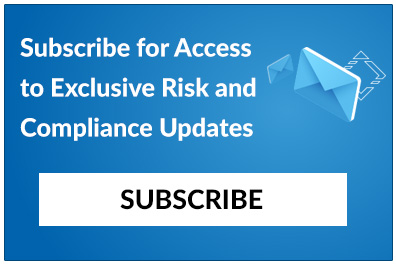Home/ Blog / Fintech Compliance and Brief Review of US Fintech Regulations in 2022
Fintech compliance means following the rules and regulations to guide business models and related financial technologies. These guidelines protect investors’ capital and consumer interest in usage.
Before designing these regulatory guidelines, government and regulatory bodies consider a few risks related to Fintech. These risks include:
- Data privacy is one of the essential considerations that regulators need to focus on to prevent breaches. A key point of risk assessment is that the regulators can find the guilty upon detecting a data leak. In countries that work under the EU (European Union), non-compliance with anti-data-leaks laws may result in a fine levied up to 2-4% of the company’s revenue.
- Money laundering has become the most pressing matter for financial institutions and governments alike. As an estimate, governments and companies lose almost $2 trillion annually in money laundering. Such a huge loss has compelled countries to develop anti-money laundering (AML) policies to detect and eliminate money laundering. Certain bodies support operations and data related to anti-money laundering activities.
- As the world moves to digital payment and transaction systems, the risk of cyber-attacks has doubled. Financial institutions, including banks and Fintech, are a hot target for these cyber thieves and significant concerns for governments. Protection against such attacks needs strict adherence to cyber security laws by Fintech to mitigate the threat level.

Overview of Fintech-Centric Laws and Regulations
The risks mentioned above have pushed financial regulatory bodies to design specific Fintech-centric laws to secure customer usage rights. Since 2021, Fintech regulations have become tighter, and experts believe governments should implement strict laws to ensure further compliance in Fintech.
We will discuss US Fintech regulations to better understand the laws that govern financial technologies.
US Fintech Regulations
The United States has the largest ecosystem of Fintech, and they also have one of the largest varieties of Fintech regulations to govern associated companies. You will fall under Consumer Financial Protection Bureau (CFPB) if your Fintech company targets the US market. Other rules that ensure safety, security, and smooth financial transactions include the Financial Crimes Enforcement Network (FinCEN), Commodities Future Trading Commission (CFTC), and Office of the Comptroller of Currency (OCC).
- FinCEN gathers information about valid financial transactions to prevent and mitigate financial crimes.
- OCC ensures that all the transactions fall under rules and regulations.
- The Securities and Exchange Commission (SEC) supervises trading platforms, while Federal Deposit Insurance Corporation (FDIC) regulates mobile-only and online banks.
- The Federal Trade Commission (FTC) devises all the laws and regulations for financial markets and approves the implementation of innovative technologies.
Fintech Regulatory Acts and Their Purpose
Graam Leach Bliley Act
A prominent data privacy act in the United States requires all financial companies to keep consumer data safe and well. The act also ensures that your consumers clearly understand the privacy policy.
Bank Secrecy Act
United States implemented Bank Secrecy Act for AML compliance, through which banks must watch out for any unusual transaction in wallets.
The Electronic Consumer Fund Act
The act supervises the online authorization of financial transfers.
US Patriot Act
The US Patriot Act controls all identification processes and Know Your Customer (KYC) policies implemented by the financial sector. The act ensures all companies follow AML and cybersecurity features and train their workers to follow the laws.
Truth in Savings Act
The act mandates all Fintech companies, financial platforms, and lenders to show information on their fees.
Federal Affiliate Marketing Rule
This rule provides agencies and companies with the information to use for marketing.
Federal Red Flag Rule
This law sets clear rules and boundaries for financial institutions in setting their policies to prevent financial theft.
E-Sign Act
E-Sign Act, short for Electronic Signature in Global and National Commerce Act, sets a standard for electronic and signature documents issued by financial companies.
Other laws and regulations for risk management include biometric recognition or face identification. All these laws may vary from state to state. Unfortunately, the United States still lacks an adequately designed Fintech compliance program but has taken steps to create one. In 2019, the Fintech Act introduced by NAHCA included a recommendation to set a Fintech regulation body within the US treasury department.
Managing Fintech Regulations
Existing and new entrants in the Fintech sector will feel overwhelmed by all the regulations. These regulations need knowledge and understanding to prevent you from falling into any unlawful activity.
An ideal way to manage this challenge is to hire a consultant or a compliance team. Even though hiring a team is not an easy task but pays better than not having one. Non-compliance may lead to business closure, so hiring a professional for the job is best.
Hiring a Compliance Expert
Hiring a compliance expert means employing a professional who has a keen understanding of rules and regulations related to Fintech. This option enables you to have interactive communication with the expert and, in turn, get expert advice on Fintech regulatory system. This choice is good if you oversee a sizable part of consumer data.
Pros
- The expert will have a better understanding of the Fintech ecosystem and laws
- There is a guarantee of loyalty
Cons
- Continuous payment even if they perform redundant activities
- Challenging to find an individual with experience to lead the compliance functions
Outsourcing Compliance
Outsourcing compliance activities is another way to manage rules and regulations to run smooth operations. If you are a small firm with a limited budget, outsourcing is the best way. It means entrusting a third party to oversee all compliance-related activities and align them with your company.
Pros
- The on-demand signing of contract saves money on salaries and other allowances
Cons
- The outside compliance team must align itself with your company
- They might manage multiple clients, and their priorities may contradict your interests

Final Words
Fintech has made its way into the financial sector and is in a continuous evolutionary phase. Even though the industry lacks a definitive set of laws, the US government has implemented various rules and acts to ensure it works under strict compliance features. Today, the need for automated regulatory change management software has become essential for Fintech organizations. Among such options, ‘Predict360 offers updated compliance features that help you align your company’s goals and prevent any unlawful action. You can request your complimentary demo to understand the solution’s diverse options.
Request a Demo
Complete the form below and our business team will be in touch to schedule a product demo.
By clicking ‘SUBMIT’ you agree to our Privacy Policy.



